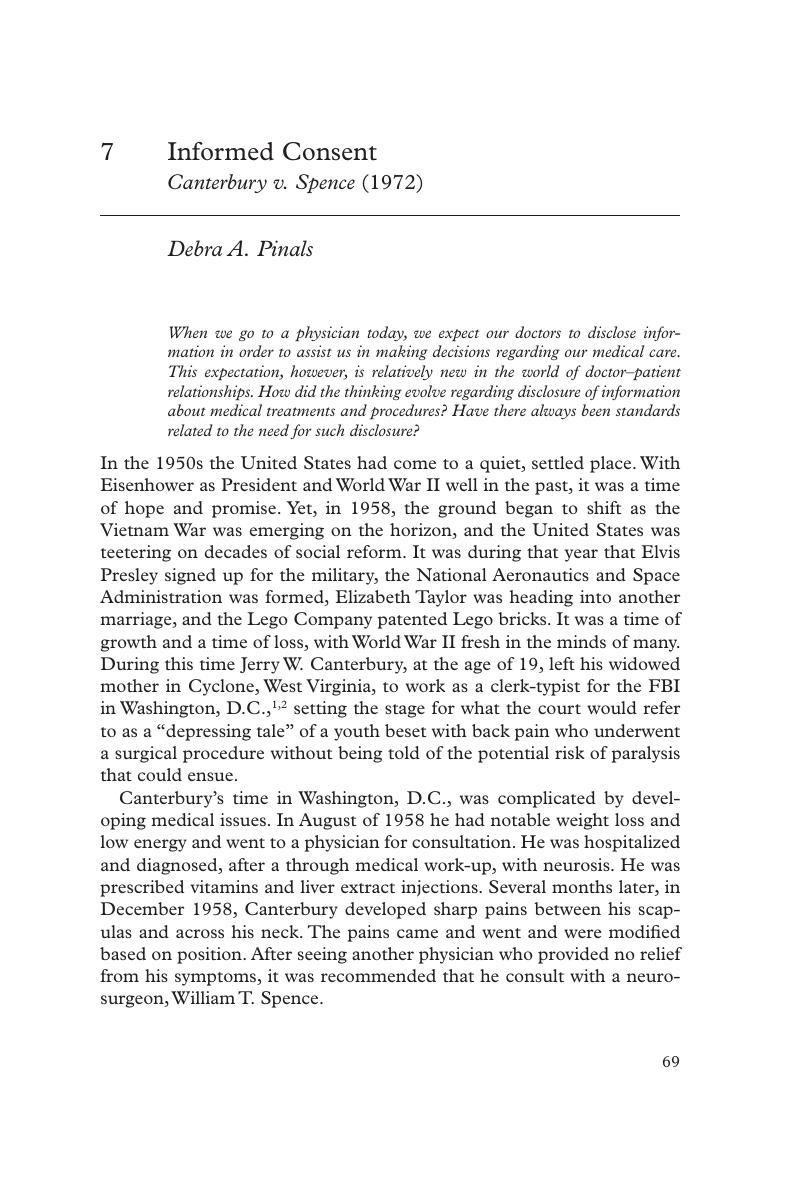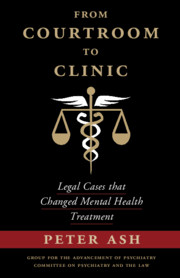Book contents
- From Courtroom to Clinic
- From Courtroom to Clinic
- Copyright page
- Dedication
- Contents
- Contributors
- Preface
- Acknowledgments
- 1 Introduction
- 2 Raising American Standards in the Treatment of Persons with Mental Illness
- 3 The Limits of Hospitalization after Commitment
- 4 Who Speaks for the Children?
- 5 The Right to Refuse Treatment
- 6 The Least Restrictive Alternative
- 7 Informed Consent
- 8 The Right to Die and End-of-Life Decision-Making
- 9 Prohibiting Psychiatrist–Patient Sex
- 10 Psychotherapist–Patient Privilege
- 11 Protecting Others from Dangerous Patients
- 12 The Insanity Defense
- 13 Conclusion
- Index
- References
7 - Informed Consent
Canterbury v. Spence (1972)
Published online by Cambridge University Press: 16 February 2019
- From Courtroom to Clinic
- From Courtroom to Clinic
- Copyright page
- Dedication
- Contents
- Contributors
- Preface
- Acknowledgments
- 1 Introduction
- 2 Raising American Standards in the Treatment of Persons with Mental Illness
- 3 The Limits of Hospitalization after Commitment
- 4 Who Speaks for the Children?
- 5 The Right to Refuse Treatment
- 6 The Least Restrictive Alternative
- 7 Informed Consent
- 8 The Right to Die and End-of-Life Decision-Making
- 9 Prohibiting Psychiatrist–Patient Sex
- 10 Psychotherapist–Patient Privilege
- 11 Protecting Others from Dangerous Patients
- 12 The Insanity Defense
- 13 Conclusion
- Index
- References
Summary

- Type
- Chapter
- Information
- From Courtroom to ClinicLegal Cases that Changed Mental Health Treatment, pp. 69 - 83Publisher: Cambridge University PressPrint publication year: 2019
References
- 1
- Cited by



